I was a naturally academic kid. I loved to read and write; and I was great at school. Even the subjects I didn’t love I still did well in because I was determined to get the A, even if it took a ton of hard work and didn’t come easy. I went to a private four year college and studied what I loved, Creative Writing, with most of my electives in dance and psychology. After graduation, I had a hard time finding a job. I was limited in several ways. I was married and location limited due to my husband’s ongoing education, so we couldn’t just pick up and move across the country. But I don’t think I would have anyway because I liked being near my family. So I took one job after the next, staying a year or less at each one until I could find a better one. Very few of them were in my field, but many of them used my skills and talents, if not my education. Most of them needed my skills, they just didn’t know it when they hired me.
The last full time job I worked before my children were born was as an administrative assistant for an educational non-profit. But my job pretty much entailed doing whatever needed to be done. Everything from photocopying to writing and designing marketing materials. It was during this time that I discovered a whole new area of education that I knew nothing about: career & technical education.
I should correct that, I knew a little bit about career & technical education (in previous generations it was referred to as vocational education or vo-tech). I had a classmate at my private Christian high school who used to leave early 3 days a week to take videography classes at the local vo-tech. Everyone wanted to be his partner when it was class project time, no matter the subject because he had access to top of the line video editing equipment at the vo-tech campus. But it never occurred to me to find out anything more about it.
Working for SkillsUSA Council, an educational non-profit focused on leadership and employment skills, I got an education of my own. I worked with five different career & technical schools, all within 30 to 40 minutes from my office. They offered the expected career and tech programs like cosmetology and automotive technology. But they also offered culinary classes, pre-engineering courses, web design and entrepreneurship programs. I was even more impressed by the students I met. I should note that involvement with SkillsUSA is optional and in some areas of the country the career and technical schools don’t promote or encourage the students to take advantage of all that SkillsUSA has to offer. So the students I met were there because they wanted to be. Many of them had plans and goals, but some of them were just excited that somebody thought they had something to offer even if they didn’t get straight A’s in English, math and history. Some of these students had been slated as B-track kids, meaning not those who were going on to college. Others were the exact opposite. I met straight A, honor students with aspirations to be engineers and computer programmers who decided not to spend their time on AP classes when they could be getting actual job training in their future fields. I met one exceptional young woman who wanted to become an engineer. By the time she was a senior in high school she had taken all of the math and science courses she could, plus all the pre-engineering classes at career & tech. So she qualified for an internship. She spent her senior year working for several different local businesses to get a taste of the kind of work she could do after college, while taking courses at a local community college.
The fact is that in our quest to make sure that every student goes to college, we’ve forgotten that not every student should go to college. A traditional four year college (let alone a master’s or doctoral program) is not more important, nor more impressive than being a plumber or an electrician, though we often treat it as though it is. I met high school graduates apprenticing as auto mechanics and welders making more money than I was, and I had a four year degree and had been in the workforce for four years!
However, career and technical education isn’t for everyone either. Students will put up with people thinking that they are choosing a trade because they aren’t smart enough to go to college, even though many career and technical students often do go on to two or four year colleges, as well as post-secondary technical education. Career and technical education works best for those gifted in working with their hands or at least a mind able to handle a certain amount of technical jargon. My husband, a computer programmer, would have excelled in a high school level career and technical program because it would have let him take advanced programming and computer design classes not offered at his local high school. But his family would likely have discouraged him because of the stigma they would have associated with career and technical education. As a straight A student and class valedictorian, they would have seen that as a waste for him. But they would have been wrong.
Culturally, at least in the United States, someone decided that it was more acceptable to be a $50,000 in debt with a business degree and no job, than to be a working electrician making that much per year. Plumbers, electricians, automotive technicians: these professionals are necessary to our society and often get paid very well for what they do. But many of us have been taught that this kind of work is second best to work that requires a four year college education. The world may need doctors, engineers and lawyers, but it needs just as many welders, and police officers. (Did I forget to mention and our local career and technical schools offer criminal justice and forensic science classes as well?) In fact, the world could probably use a fewer PhD college professors (as much as I like and respect that profession and those who choose it) and a few more of the professionals who keep the world together. Because who do you think the president of Harvard calls when his office roof is leaking?
My experience working with career and technical students through SkillsUSA truly changed my perspective. I came from an academic family where my parents were from the first generation in their families to attend college. My grandfathers both worked in what is dubbed “trades.” But it was never presented as much of a possibility to me. Part of that is probably a gender bias, though even that is changing. During my time with SkillsUSA, I met young women who were the top students in their classes in welding, carpentry, automotive refinishing, welding, masonry, plumbing, building maintenance technology and criminal justice. There can be great honor is these professions when the work is pursued with integrity and a strong work ethic. I hope the next generation of young people in this country will see it as honorable (along with the politicians who defund it in favor of making sure “every student goes to college.”)
So have you had any experience with career and technical education? How was it presented to you, as a legitimate career possibility or only for kids not smart enough for college?
Just as a side note, all of the pictures in this post are of real students competing in their areas of training at a district level competition. Many of these students went on to compete at state a national competitions to win tools of the trade, scholarships and other opportunities that will help them in the future.



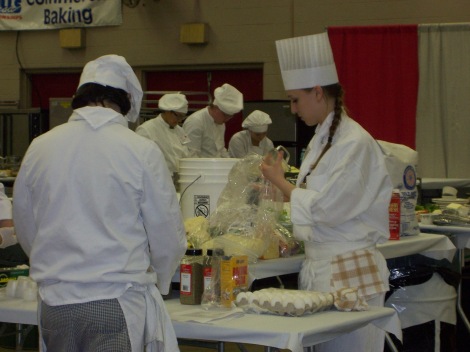
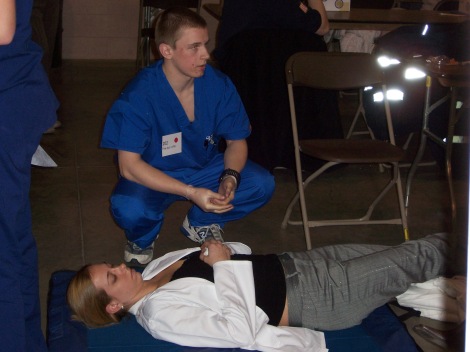
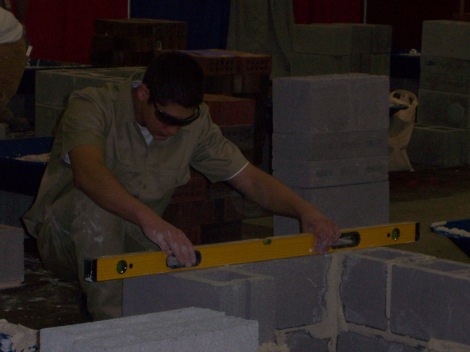
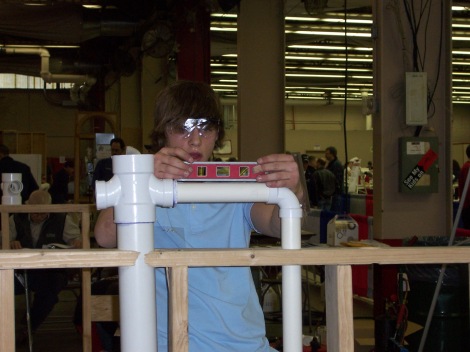
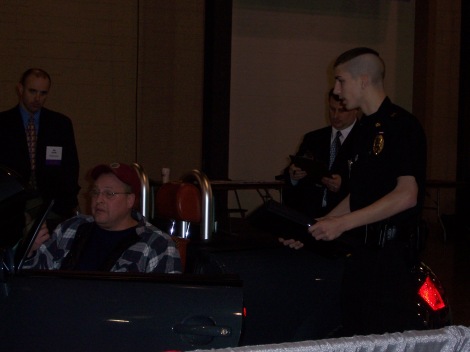





Wonderful article about CTE! I see students who wish to pursue a career but think a formal education is the ONLY way to accomplish their goals. You are right on about criminal justice, police, and forensic science courses being offered by CTE programs. We support these programs and want to see all students not only “get a job” but love what they are doing because they are passionate about it!